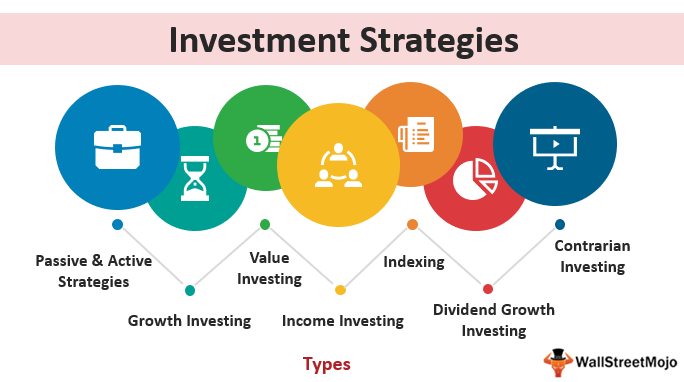Running a successful business requires careful planning and smart investment decisions. In today’s competitive market, businesses need to continuously look for ways to grow and expand. Therefore, having effective investment strategies in place is crucial for long-term success. In this article, we will explore various investment strategies that can help businesses achieve sustainable growth.
1. Diversify Your Investments
Diversification is a key investment strategy that spreads the risk across different assets or industries. By investing in a diverse range of investments, businesses can reduce their exposure to market volatility and increase their chances of earning consistent returns. For example, instead of putting all your money in one stock, consider diversifying your investments across stocks, bonds, real estate, commodities, or mutual funds. This way, if one investment performs poorly, the others can offset the losses.
2. Strategic Partnerships and Acquisitions
Strategic partnerships and acquisitions can be an effective way to expand your business and fuel its growth. By teaming up with complementary businesses or acquiring smaller companies, you can gain access to new markets, technologies, or customer bases. These partnerships can also help you achieve economies of scale, reduce costs, and enhance your competitive advantage. However, it is essential to conduct thorough due diligence before entering into any partnership or acquisition to ensure alignment in goals and values.
3. Research and Development
Investing in research and development (R&D) is crucial for driving innovation and staying ahead of the competition. Allocating resources to develop new products, processes, or technologies can help businesses maintain their competitive edge. R&D investments can lead to breakthroughs that contribute to business growth, open up new markets, enhance product offerings, and improve operational efficiency. Businesses should prioritize R&D as a long-term investment in their sustainable success.
4. Capital Expenditure
Capital expenditure involves investing in assets that provide long-term benefits to the business, such as purchasing new equipment, upgrading technology, or expanding production facilities. By carefully evaluating and investing in capital expenditure projects, businesses can improve their operational efficiency, increase productivity, and create a solid foundation for growth. It is important to conduct a comprehensive cost-benefit analysis before committing significant funds to any capital expenditure project.
5. Employee Development and Training
Investing in employee development and training is an often overlooked investment strategy for business growth. By providing ongoing training and education opportunities to employees, businesses can enhance their skills, knowledge, and productivity. Well-trained employees are more likely to contribute to business growth, come up with innovative ideas, and deliver excellent customer service. Encouraging a learning culture within the organization not only benefits individual employees but also nurtures a talented and motivated workforce.
6. Marketing and Advertising
Effective marketing and advertising strategies are crucial for business growth. Allocating funds towards marketing campaigns, branding, and advertising efforts can help businesses expand their customer base, increase brand awareness, and generate leads. Digital marketing, social media advertising, and content marketing are some popular and cost-effective strategies that can yield significant returns on investment. Businesses should continuously analyze the effectiveness of their marketing initiatives to optimize their strategies and maximize growth.
7. International Expansion
Expanding into international markets can create new growth opportunities for businesses. However, it requires careful planning and investment. Businesses should conduct thorough market research, assess the local competition, and understand the cultural differences in target markets. Investing in international expansion can involve setting up overseas offices, establishing distribution channels, or acquiring local businesses. Businesses must have a solid understanding of international trade laws and regulations to navigate successfully in foreign markets.
Conclusion
Investment strategies play a crucial role in driving business growth and ensuring long-term success. Diversifying investments, forming strategic partnerships, investing in research and development, capital expenditure, employee development, marketing and advertising, and international expansion are all effective strategies businesses can implement. However, it is essential to carefully assess each investment opportunity, conduct thorough due diligence, and regularly evaluate the outcomes to ensure optimal growth and profitability.


